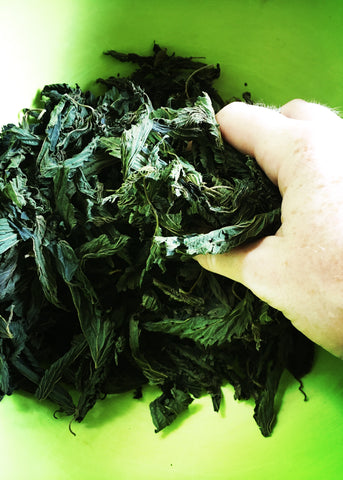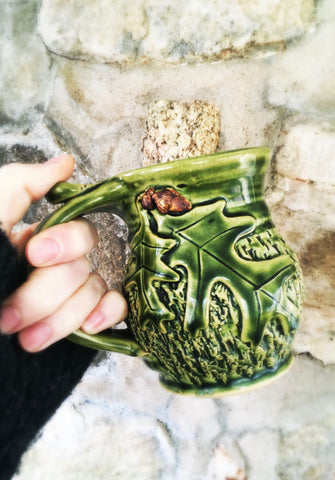
"Herbs don't work."
This is something I hear all the time. When I take the time to probe deeper into why someone has formed this opinion, the answers always prove to be very revealing.
Often, they just haven't had much experience using herbs. They will say something like "Well, I tried X herb once for X ailment, and it did nothing." When I ask for more specifics, it's usually the case that they took a single, small dose and didn't notice an immediate effect, so they gave up. Or maybe they considered the herbal tea bags you find on grocery store shelves to be "herbs."
In rarer cases, it's because they were taking incorrect doses or using herbs that aren't at all suited to their constitution or to the ailment they were seeking relief from.
The fact is, there are many reasons why herbs may not have the intended effect. Let's go over some of the more common ones.
Dose

It's very often the case that when people are working with herbs for their own wellness, they just aren't taking them in the right amounts. The tiny amount of herb found in most standard tea bags will do absolutely nothing to affect your system. Commercial tea companies may advertise the benefits of their product, but the fact is that these are, at best, pleasantly flavored drinks.
To have an actual effect, the size and constitution of the person need to be considered before determining how much of an herb to take. A larger person who tends to be more tolerant of drugs may need a bit more.
Most herbal books provide a good starting place, but even these typically list only standard dosages intended for a 150 pound adult. So, if you are a person who is say, 230 pounds and 6'1", you may not achieve the desired results by taking a standard dosage.
Conversely, you may weigh less than 150 pounds and may be very sensitive to drugs/substances. In that case, it would be better to start out at a lower dose and see how it works for you.
This is why, if you're working with a herbalist, they will often suggest starting with the standard (or lower) dose and slowly titrating up until you find what works well for you.
Potency and Quality

I'm sorry for hating so much on poor little tea bags, but, well...I've got to say that they often contain old, brown, low quality plants that are well past their prime. This means that their potency and overall effectiveness (even if you did take an appropriate dose) will be drastically reduced. Once again, it's just a nicely flavored drink, not something that will yield results.
When shopping for herbs, keep in mind that they should always appear vibrant, not dried up, fragile, and brown. They should smell fresh, not, well....dusty. Make sure you're purchasing from somewhere reputable, and preferably where the plants are grown organically and sustainably.
Frequency

This ties in very closely with dosage - if you're not taking your herbs frequently enough, it will have the same effect as taking too small a dose. If you're supposed to take something three times a day, it's important to stick to that so that the herbs can do their work.
Time

Because people today have grown up using pharmaceutical drugs for most ailments, we are trained to expect fast, almost instant, results. (I should note here that I have nothing against using pharmaceuticals if you need to. Many aspects of modern medicine are an absolute miracle.) But herbs do not work the same way.
Because herbal medicine works to slowly correct imbalances and build health rather than suppress symptoms, it may take a few doses before you notice any changes in how you feel. If you're working with herbs for something more chronic, it may even be months before you see an improvement.
So don't give up if you don't see a big, instant difference - give the plants a chance to do their work.
You Haven't Changed Anything Else

Any good herbalist (or doctor, for that matter), will want to get an idea of what might be causing an issue before just throwing herbs at the problem. Diet, lifestyle, activity level, stresses, and even past trauma can all have a direct and profound effect on our health.
The sad but true fact is that if you don't correct an underlying pattern or address the source of the problem, you can take all the herbs in the world and it won't touch the issue. For example, let's say you want to cleanse your liver and improve digestion, so you start taking dandelion and burdock root to support that process. But you also eat a steady diet of sugar and processed foods and drink much more alcohol than you should. That sets dandelion and burdock up for a battle they can't win.
Herbs can do a lot, but they have limits. As I mentioned above, they are not drugs, and will not provide instant fixes. They can support our health and nudge our bodies back into alignment, but if we keep harming ourselves, even the most potent plants won't be able to help us.
Energetics

I could write a whole post on herbal energetics (I mean, whole books have been written about it...), but I'll try to pare it down to the basics.
When I say energetics, I mean the defining qualities, or nature, of the herb. Is it warming or cooling? Moistening, or drying? Astringent? Relaxing? Stimulating?
To illustrate what I mean, here's an example of how energetics can make a big difference in outcome:
Let's say you have a damp cough with lots of phlegm. You feel cold, and your chest feels heavy. You type "herbs for cough" into Grandmother Google and see dozens of results pop up. Marshmallow leaf, licorice, horehound, elecampane, yerba santa, mullein leaf...and the list goes on. You like the sound of marshmallow (Althea officinalis...what a beautiful name!), so you head to the health food store to pick some up.
After drinking a cup of the tea, you don't notice any difference. In fact, you feel a little worse. You develop a negative opinion about herbs. I mean, you tried a herb that's supposed to help with cough and it did nothing, so herbs must not work and it's all just a bunch of hokum.
Why was this the outcome? Well, if you dig a little deeper into the energetics of marshmallow, you'll see that it's a cooling, moistening plant. Meaning it's meant to soothe hot, dry coughs. Drinking marshmallow when you've already got a cold, damp condition will only compound that cold dampness instead of correcting the imbalance. It won't do anything to help, and might actually make you feel worse.
But, what if you had chosen yerba santa (Eriodictyon californicum) instead of marshmallow? You make a nice hot cup of the tea, take a few sips, and feel your airways clear. You feel a little warmer, too. After a day or two of drinking the tea regularly, you feel way better. You think "Wow, herbs work!" This is because yerba santa is a warming, drying plant that helps bring up excess phlegm. These energetics counteracted the cold, dampness of your condition.
Conversely, if you had tried yerba santa for a hot, dry cough, you may have felt even more agitated and irritated, while moistening, cooling marshmallow would have brought relief.
So you see, knowing the energetics of a plant is a major key to having success with herbs.
If you're taking a herb for a less acute problem, it's also wise to consider your own personal baseline constitution. If you tend to run warm and are easily agitated, look for an option that will be a bit more cooling and relaxing, or at least add cooling, relaxing herbs to your formula.
I, for example, tend to be dry and cold. I love drinking nettle leaf infusions for energy and overall health, but it can be drying in the long term. So, I make sure to add in moistening herbs like oatstraw or violet leaf to my rotation.
So, how can I learn to work with herbs effectively?

My answer to this is simply to start by investing in a few good herbal books. I really like this one, as it lists the energetics of the herbs in a straightforward way, and this one because of how practical and approachable it is. If you're curious about an herb, look it up and learn a little about it.
While the internet is a wonderful place, it's not always the best way to find credible information (I realize the irony, as you are reading this on the internet). As with anything else, just make sure your sources are credible.
And of course, try things for yourself. There is no substitute for, say, drinking that cup of yerba santa and feeling how warming and drying it is. This is the best way to really understand energetics and get to know a particular plant.

If you're someone who hasn't had good experiences with herbs in the past, I hope this inspires you to give them another chance.
Be well,


As always, the information herein is purely educational and is not intended to cure, diagnose, or treat any disease. Always consult a doctor before beginning a herbal regimen, especially if you are pregnant, breastfeeding, or have underlying conditions.
